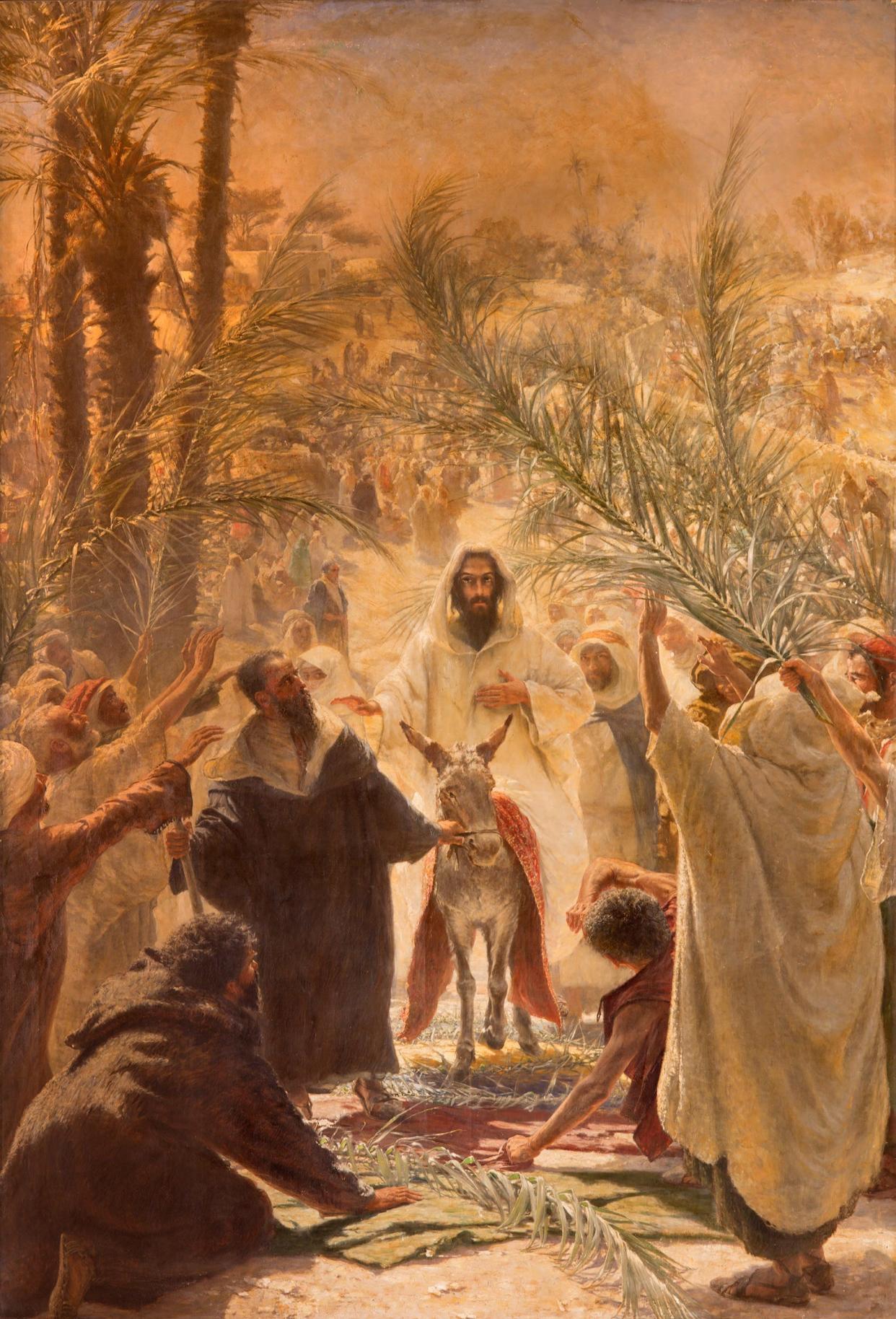Viewpoint: Jesus' followers do not stay silent; they speak against injustice

- Oops!Something went wrong.Please try again later.
Editor's note: As part of our commitment to foster civil conversations in Viewpoints, we're inviting faith leaders to submit edited versions of their homilies that transcend religion, with messages that can appeal to people of all faith traditions.
Two thousand years ago, there were a couple of parades in Jerusalem. As theologians Dominic Crossan and Marcus Borg describe, “From the east, Jesus rode a donkey down from the Mount of Olives, cheered by his followers ... From the west, Pontius Pilate, the Roman governor . . . entered Jerusalem at the head of a column of imperial cavalry and soldiers.” Jesus’ procession proclaimed the kingdom of God and Pilate’s proclaimed the power of empire, a conflict central to the story of Jesus and his followers.
The people who cheered for Jesus had nothing — in Luke’s version of the story, they did not even have palm branches to wave. They used their own coats for a make-shift red carpet. There were no funds for a loudspeaker. There were no designated chant leaders, so they borrowed a line from Psalm 118, “Blessed is the one who comes in the name of the Lord!”
But these folks were a little salty, so they changed a word, making it, “Blessed is the king who comes in the name of the Lord!”
Apparently, the Pharisees in the story are from the Midwest because they immediately reply, “Ope!” They asked Jesus to order them to stop chanting.
They felt the people were being too aggressive. To declare Jesus to be king meant refusing allegiance to Caesar. Violence, oppression, elitism and despair ruled the day. This was a protest, an airing of grievances, and a declaration of commitment to another way.
Jesus responded, “If these were silent, the very stones would cry out.”
In other words, some things must be said. This had been Jesus’ approach to ministry, regularly calling out legalism, religious bullying and what justice required. Jesus would not stop talking about the gap between the rich and the poor, giving us clues about the economic and social status of those who followed him, desperately in need of someone to flip the tables of injustice and speak truth to power.
More from The Rev. Lori Allen Walke: Why this world needs to be more like Mary, who broke norms to anoint Jesus' feet
This is not an ancient story. It is still happening. The governor’s office is running a Gifted and Talented Program for Grifters. The legislative majority has either been happy to go along or too busy trying to establish a surveillance state to enforce gender norms, treating women as incubators, and preventing people from protesting injustice or using the ballot to make change.
It would be easy, understandable even, for us to keep our heads down, to keep quiet, and stay in our designated place — lest we become the target of the rich and powerful.
But followers of Jesus do not stay silent. Some things must be said.
We must keep insisting on the truth: Women are capable moral agents. Trans rights are human rights. All children deserve quality and free education. Black Lives Matter. There is no Planet B. God fills the hungry and sends the rich away.
We must refuse to let our communities sink deeper into cronyism, homophobia, sexism and greed.
Clear your throat, Church. It’s time to protest.

The Rev. Lori Allen Walke is senior minister at Mayflower Congregational United Church of Christ.
This article originally appeared on Oklahoman: Jesus' followers spoke against injustice. Clear your throat, Oklahoma.

